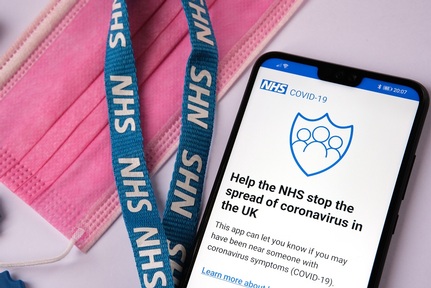Covid: Government launches new pilot scheme to help people self-isolate from new variant
Increased social care support and a ‘buddying’ service for people who struggle with mental health are just some of the new incentives to be piloted in nine parts of England to help people self-isolate in areas with higher coronavirus infection rates.

In partnership with local authorities, the government is investing £12m in this scheme, with the money used for a range of initiatives including increased social care support for vulnerable adults, providing ‘buddying’ services for people whose mental health has been affected by lockdown, providing alternative accommodation for those in overcrowded households and translation support for individuals where English isn’t their first language.
The areas that will receive funding for these pilots are Newham; Yorkshire and Humber; Lancashire, Blackburn & Darwen, Blackpool; Greater Manchester; Cheshire and Merseyside; Royal Borough of Kingston; Hackney; Peterborough, Fenland and South Holland, and Somerset.
Health and Social Care Secretary Matt Hancock said: “From the very beginning of this global pandemic, the British public have made tremendous sacrifices and played their part whenever they’re asked – social distancing, self-isolating, getting tested and now finally, getting the jab.
“Variants have the potential to be a trojan horse for our hard-won progress and it is more vital than ever that we do what we can to show them the exit door, following the rules and self-isolating when asked.
“We recognise just how challenging self-isolation is for many people and these pilots will help us find the best ways to support people and making it easier for everyone to keep doing their bit.”
These pilots are designed to encourage people most at risk of catching and transmitting Covid-19 to come forward for testing and to self-isolate successfully if they test positive.
To test ways to best support people to stay self-isolating if they test positive for Covid-19 and to encourage uptake of testing, the government is also backing a pilot across the Greater Manchester region with £2 million of funding.
The funding will assess ways for people to keep isolating, including ‘support and engagement teams’ who will work with households to develop a bespoke plan for self-isolation.
'Our partnership with local councils has seen us reach more positive cases of the virus than ever before'
Dr Jenny Harries, chief executive of the UK Health Security Agency, said: “We are doing everything we can to send this virus into retreat and stifle the spread of new variants, and at the heart of this effort is our collaboration with local authorities.
“Covid-19 is a global disease, but it requires local solutions as well as national ones, and I am hugely grateful for the efforts of the local authorities that are going to be involved with these pilots.
“Our partnership with local councils has seen us reach more positive cases of the virus than ever before, many of whom were people who could otherwise have unknowingly spread the virus to their loved ones.”
The government is currently working in partnership with local authorities to help to control the spread of the B1.617.2 variant, first identified in India.
Additional surge testing, genomic sequencing and enhanced contact tracing is helping to control the spread of variants by rapidly breaking chains of transmission.
NHS Test and Trace continues to trace the contacts of any individual who has tested positive while also providing support to local authorities throughout the process. Cllr James Jamieson, chairman of the Local Government Association, said: “Rapidly targeting local outbreaks and supporting people to self-isolate when required is absolutely crucial to our continuing fight against coronavirus.
“These pilot schemes will provide further insight into what works best in supporting those who test positive and their contacts to do the right thing to protect themselves, their families and their wider communities.
“All councils continue to use their unique local knowledge and connections to reach out to areas where they are most needed, working with government in our joint national effort to stop the spread and keep case rates as low as possible as we look towards a return to our normal way of life.”
Latest News
 29-Jul-24
Dementia Bus gives carehome.co.uk staff insight into life with dementia
29-Jul-24
Dementia Bus gives carehome.co.uk staff insight into life with dementia
 27-Jul-23
UK's top home care agencies in 2023 revealed
27-Jul-23
UK's top home care agencies in 2023 revealed
 30-Nov-22
A quarter of older people keep their falls secret from family
30-Nov-22
A quarter of older people keep their falls secret from family
 29-Nov-22
'Covid-19 has not gone away' say terminally ill
29-Nov-22
'Covid-19 has not gone away' say terminally ill
 28-Nov-22
IT consultant who received poor care opens 'compassionate' home care business
28-Nov-22
IT consultant who received poor care opens 'compassionate' home care business